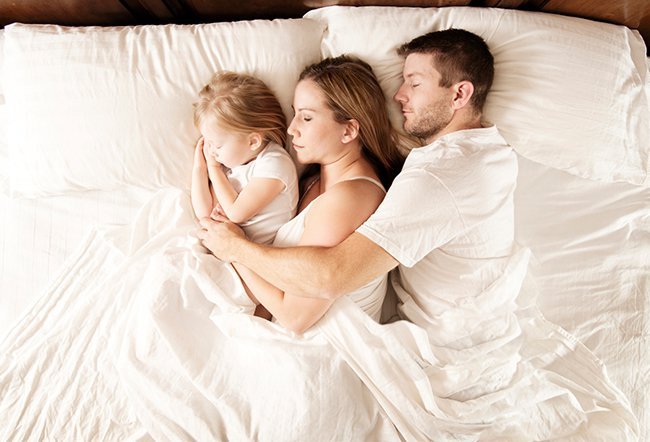How Much Sleep Do You Need by Age?

Getting enough sleep is essential for your health. However, the amount of sleep you need varies depending on your age, gender, activity level, and even your genes. Children and teenagers typically require more sleep than adults.
Over two years, the National Sleep Foundation conducted extensive research to determine the guidelines for how much sleep is required for specific age groups:
- Newborns (3 months or younger): 16-18 hours
- Infants (4-11 months): 12-16 hours
- Toddlers (1-2 years): 11-14 hours
- Preschoolers (3-5 years): 11-13 hours
- School-aged children (6-13 years): 9-11 hours
- Teenagers (14-17): 8-10 hours
- Adults (18 and older): 7-9 hours
| Age group | Recommended sleep | Insufficient sleep | Oversleeping |
|---|---|---|---|
| Newborns (-3 months) | 14-17 hours | ≤11 hours | ≥19 hours |
| Infants (4-11 months) | 12-15 hours | ≤10 hours | ≥18 hours |
| Toddlers (1-2 years) | 11-14 hours | ≤9 hours | ≥16 hours |
| Preschoolers (3-5 years) | 10-13 hours | ≤8 hours | ≥14 hours |
| School-aged children (6-13 years) | 9-12 hours | ≤7 hours | ≥12 hours |
| Teens (14-17 years) | 8-10 hours | ≤7 hours | ≥11 hours |
| Young adults (18-25 years) | 7-9 hours | ≤6 hours | ≥11 hours |
| Adults (26-64 years) | 7-9 hours | ≤6 hours | ≥10 hours |
| Seniors (65 years and older) | 7-8 hours | ≤5 hours | ≥9 hours |
Why is sleep important?
Sleep has a greater impact on you than you may realize. Your sleep quality has a direct impact on how you feel during the day, as well as your physical and mental health. Here are a few reasons why getting a good night's sleep is crucial:
- Regulates the production of melatonin, which in turn regulates your moods, productivity, and eating behavior
- Improves the neurotransmitter concentrations in your brain and helps enhance your productivity, concentration, focus, and creativity
- Improves athletic performance by increasing response time, quickness, and agility
- Regulates your weight via complex hormonal interactions that influence your satiety levels and eating behavior
- Aids in the recovery of illnesses and strengthens your immune system
What happens if you don’t get enough sleep?
If you don't get enough sleep regularly, you may develop sleep deprivation. If this is the case, your body will most likely send signals that you need more sleep. Symptoms include:
- Sleepiness during the day
- Irritability
- Lack of motivation and productivity
- Difficulty focusing
- Difficulty with memory
- Difficulty making decisions
- More hunger than usual, causing weight gain
- Dark circles under the eyes
- General dull complexion
- Weakened immune system
- Mood disorders (depression or anxiety)
Chronic sleep deprivation can cause obesity, diabetes, high blood pressure, coronary artery disease, stroke, and even mental illness. Adequate rest can help prevent these issues and is an important part of living a healthy lifestyle.
Why can’t I fall asleep?
Sleep is a complex physiological process and the following factors can disrupt sleep quality:
- Stress or anxiety
- Pain
- Health conditions (heartburn or asthma)
- Some medicines (cough medications containing phenylephrine)
- Caffeine
- Alcohol and other drugs
- Sleep disorders (sleep apnea or insomnia)
- Sinusitis
If you are having trouble sleeping, try the following tips:
- Changing your routine during the day (for example, exercising in the morning instead of at night)
- Making your sleeping environment as comfortable as possible (for example, making sure your bedroom is dark and quiet)
- Establishing a bedtime routine (for example, going to bed at the same time every night)

